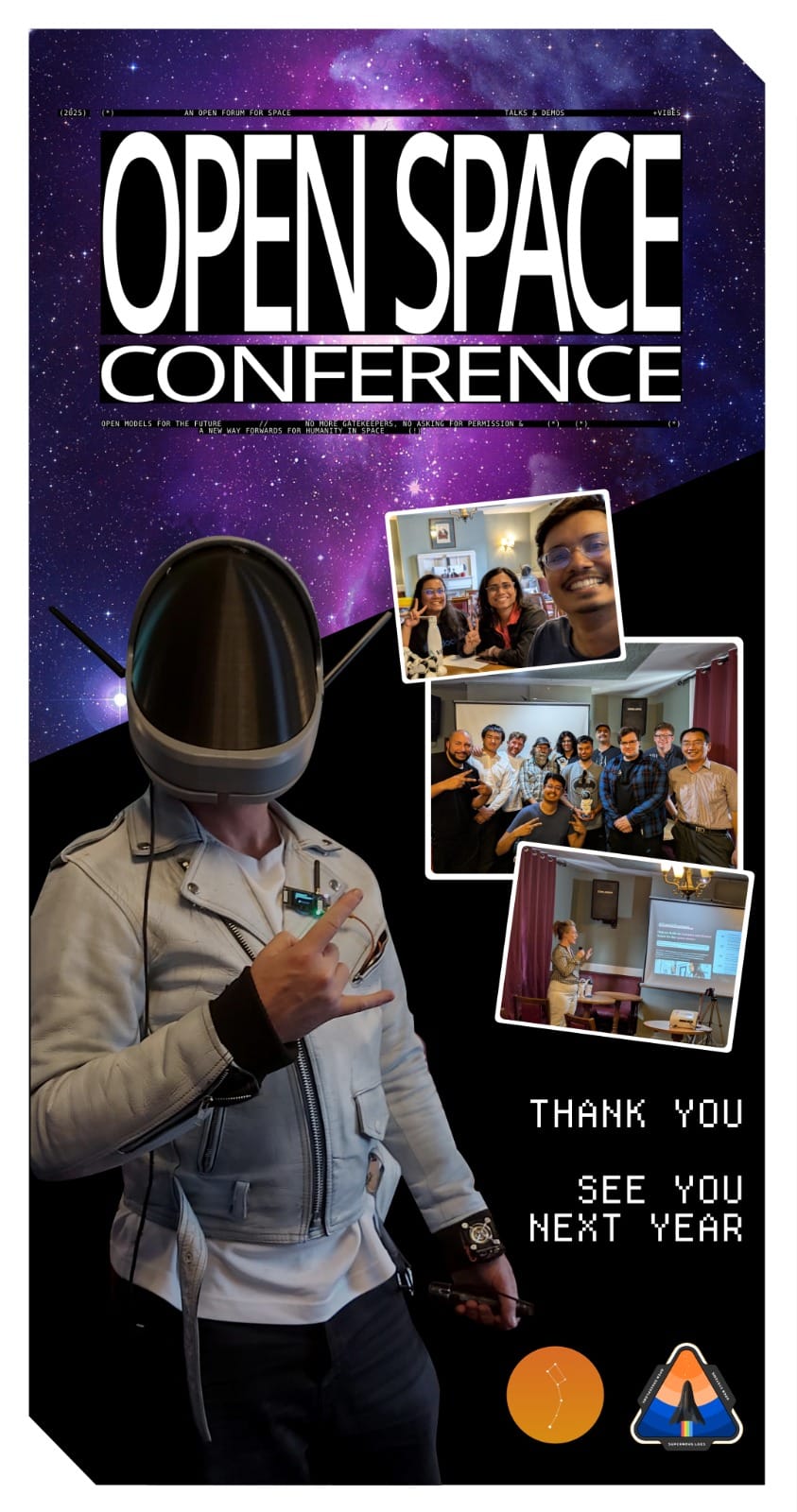Hosting UK's first Open Space Conference
How me and my friends went from an idea to a conference in a month.
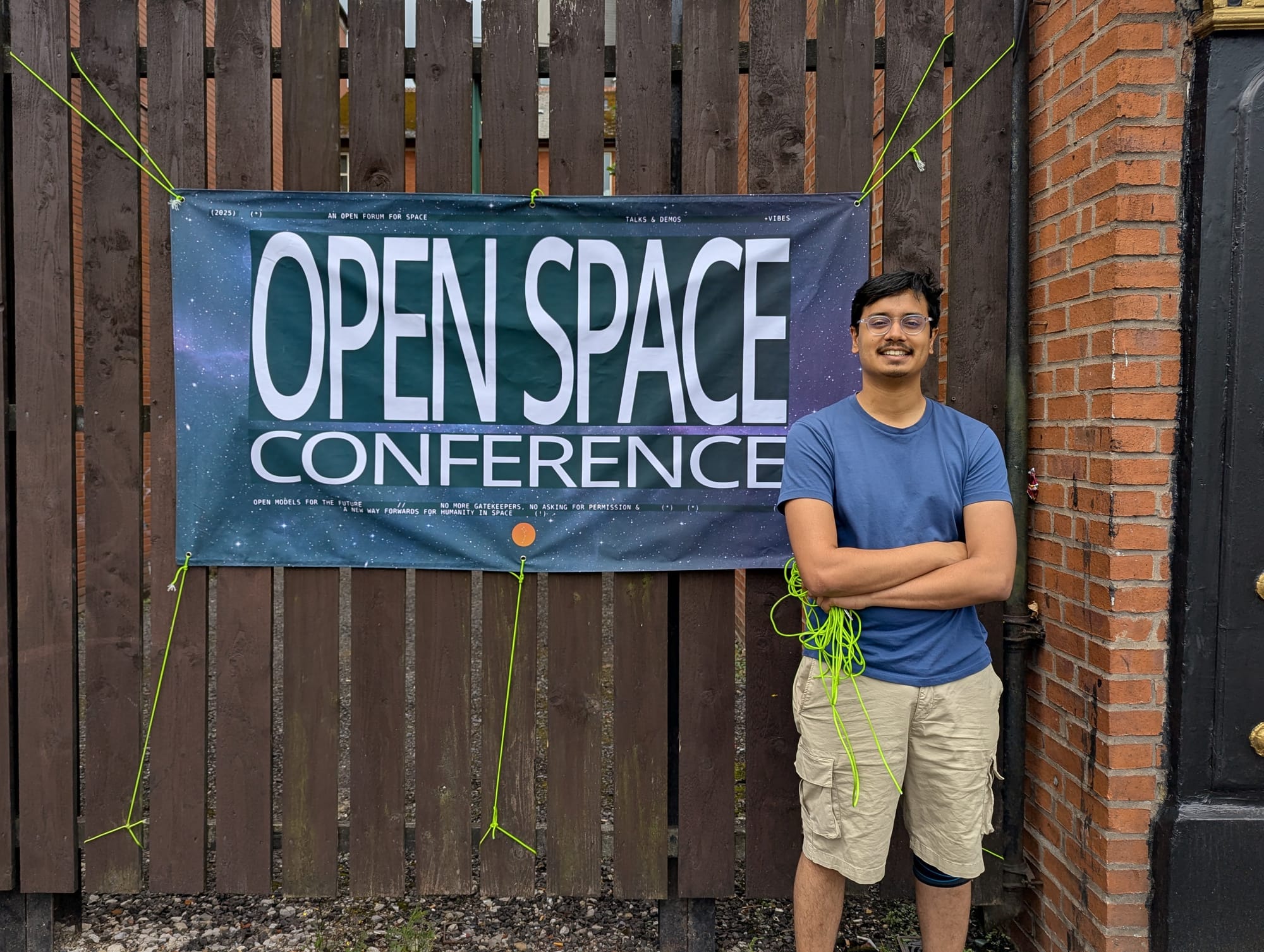
Today, I want to share a story. It's a story about a conference and an idea. Adam reached out on the Manchester Discord asking for people who would be willing to help with a conference, particularly an open space conference. Being interested in space for a long time, I decided to sign up along with my partner, so we could both help make this dream a reality.
In our initial conversations, I discovered that Adam's deadline was quite short. He wanted to organize the event within a month to align it with the UK Space Conference, which was happening nearby in Manchester. His idea was to host a fringe conference - a side event that would be free to enter, allowing attendees to donate if they wished, thereby giving more people the chance to participate in such an event. The main UK conference costs £550 for a day, whereas ours was free. That was the main difference.
An Open Conference
Within the UK space sector, there are frequent complaints about the lack of people in the industry. Our goal was to address this by creating a free conference where many people could join, making it a more open event where attendees could seize the opportunity to engage with the space sector. And that's exactly what we did. I met up with Adam at the Hackspace, which became our central hub throughout the endeavor. It was there that we created posters, initial components, and held all of our discussions regarding planning, setups, and scheduling.
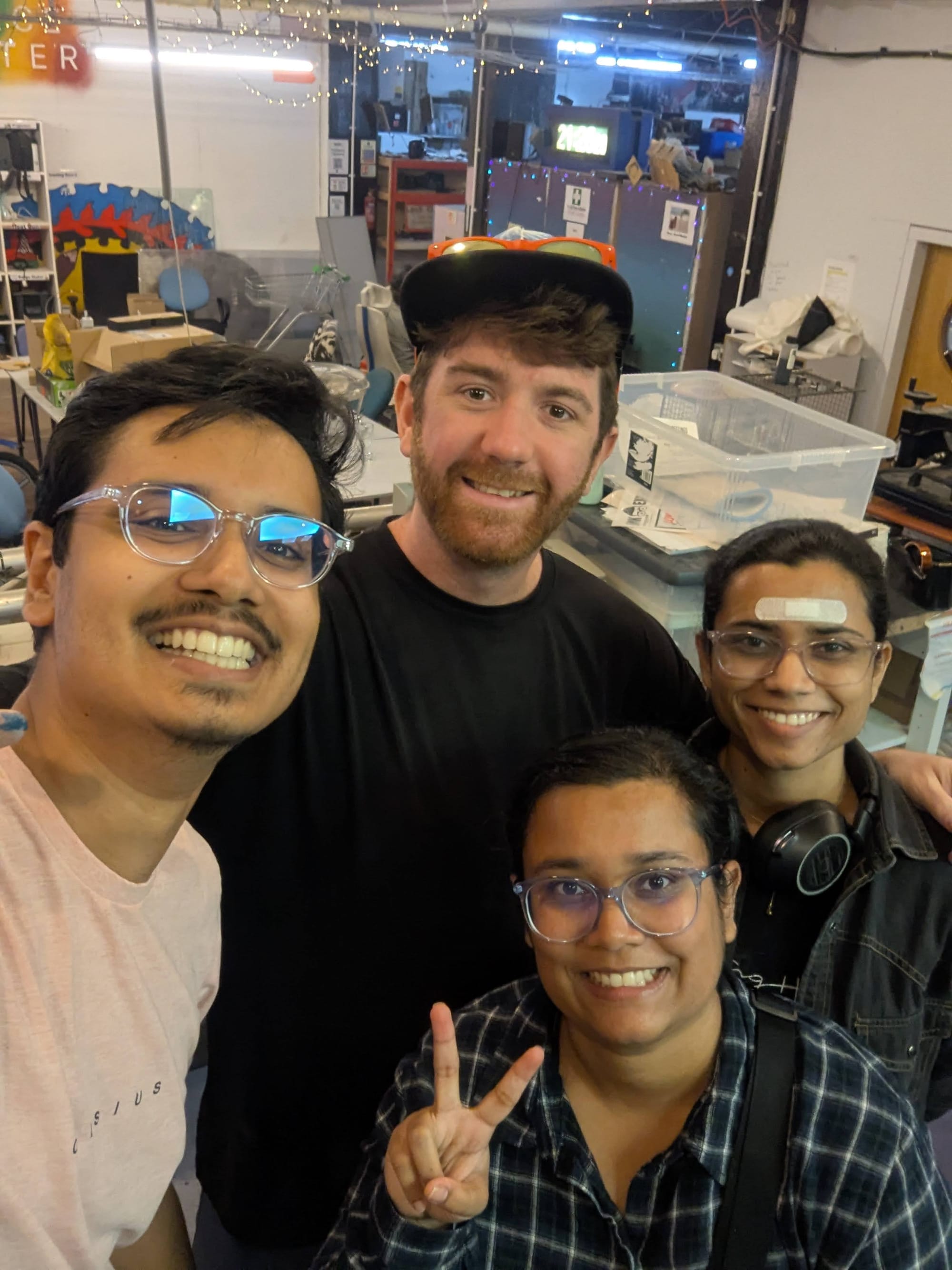
After crafting our initial plan, we started creating demos and components together, and I assisted with marketing. We produced a few videos and shared them online, which garnered some interest and engagement from people interested in such a conference.
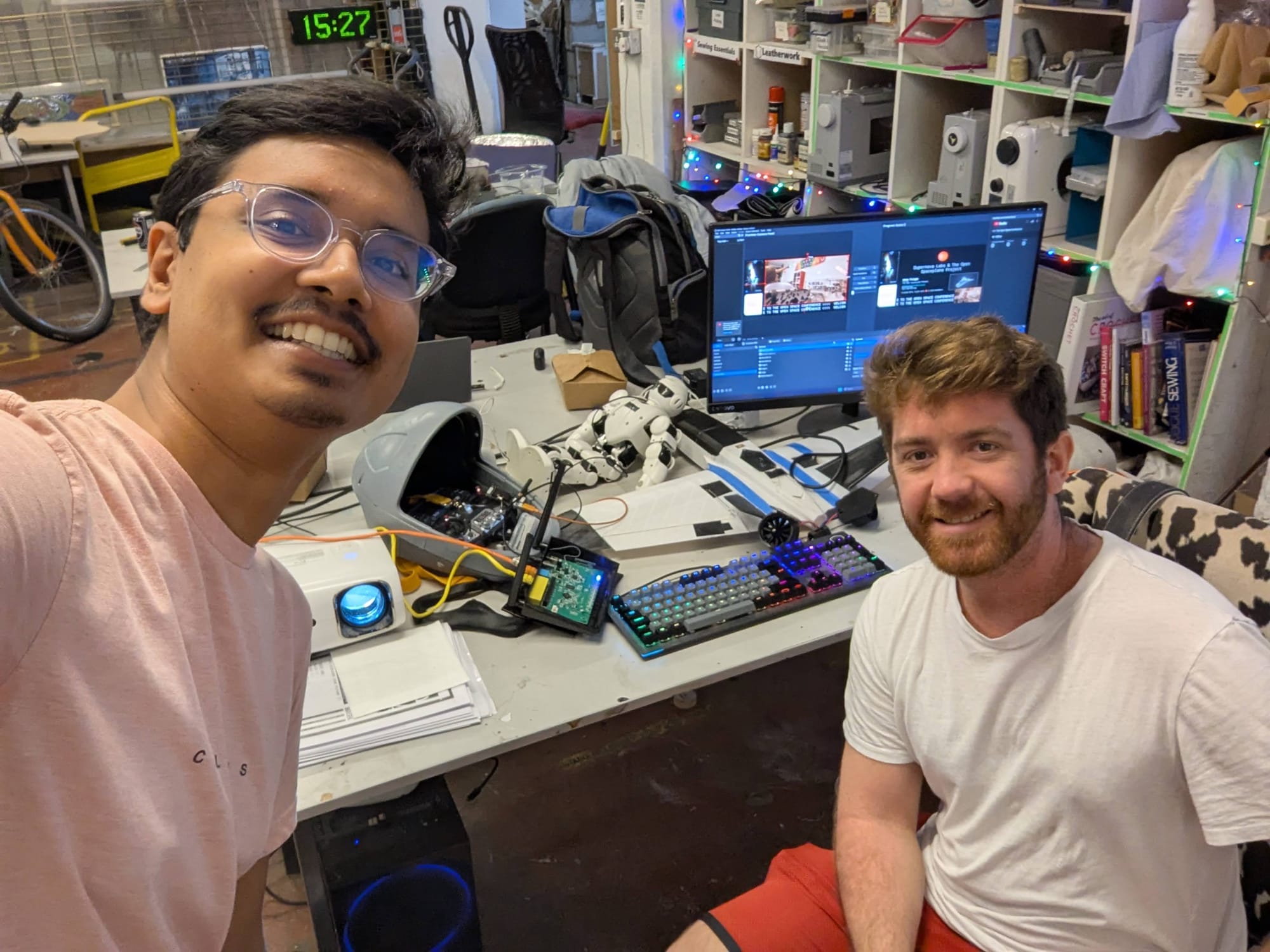
Preparing for Event-Day
With that momentum, we prepared for the event day. Additional helpers joined us, and we noticed interest from potential attendees. As the day approached, we focused on preps for the talks themselves. We booked The Briton's Protection, an old and popular venue with historical significance as it provided shelter during the Peterloo Massacre in Manchester. It was always part of the plan to host our event there.
One critical step in our marketing was distributing flyers around the city. While originally expecting to hand out flyers on the street, Adam's experience with organizing pub crawls led us to distribute our flyers in various bars instead. People were quite receptive; despite the likelihood of our flyers being discarded, they were kind and offered words of encouragement. Some bar patrons even engaged in conversations about the conference, with several people exchanging contacts with Adam for future events.
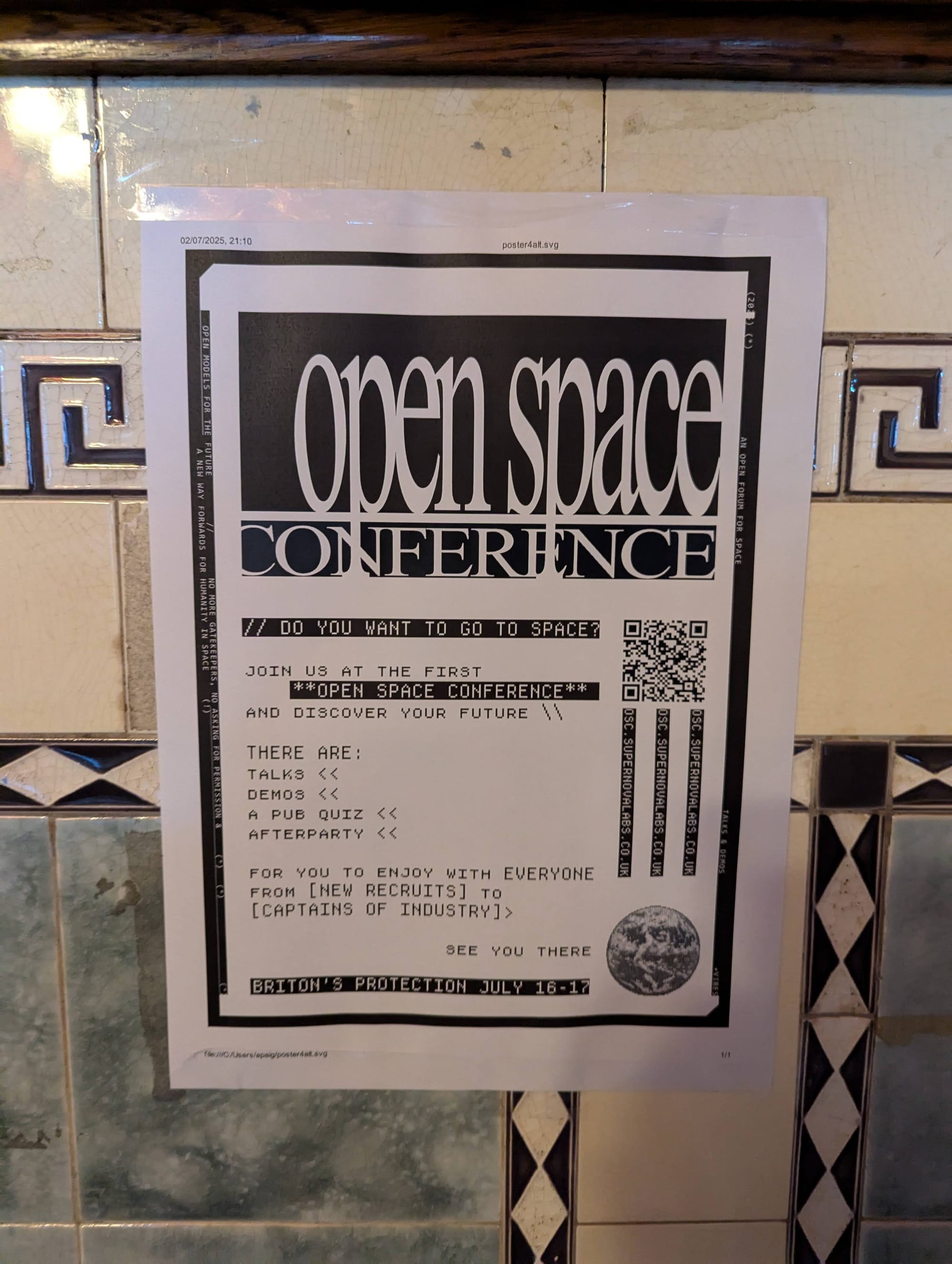
The night before the conference, right around 11 PM, I ventured out in the rain with Adam to transfer supplies from his car to the conference room above the venue, hoping to prevent water damage. Next day was event day.
The Conference
On the morning of the conference, we faced a minor scare with our internet setup not working as anticipated. I took the initiative to fetch a USB wireless stick to get Adam's PC online for streaming via OBS. Despite these hurdles, the day went exceptionally well.
We opened the conference with a large crowd, comprised of many founders and people interested in the space industry who couldn't afford to attend the main conference. Attendees traveled from outside Manchester, including Liverpool and Kingston upon Hull, underscoring the event's draw.
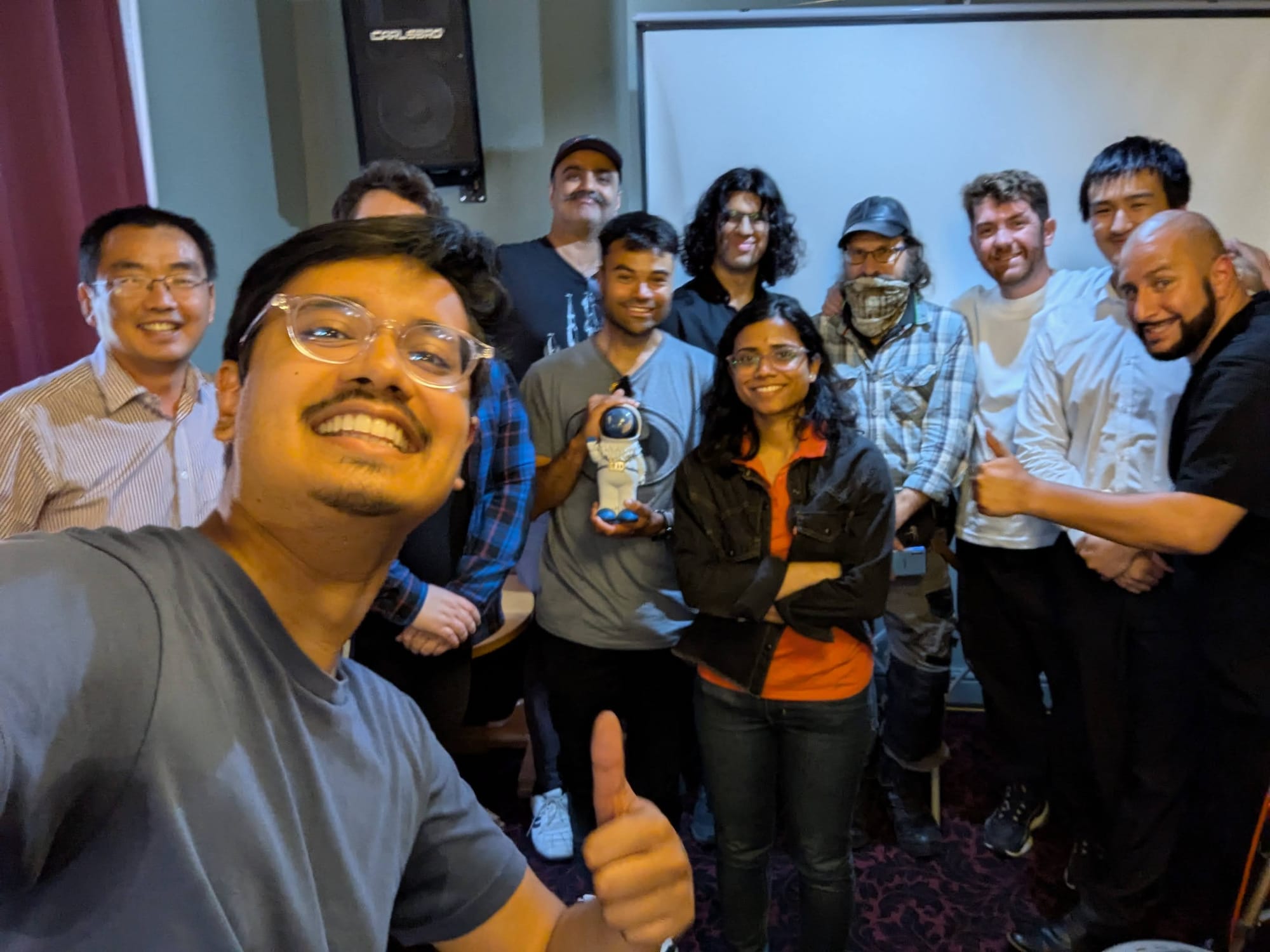
Adam began by explaining the essence of the Open Space Conference, setting the stage for my talk on simulating space in video games. I delved into space physics and procedural generation, with examples from games like Kerbal Space Program and No Man's Sky. Initially planned for an hour, I wrapped up in 30 minutes as I sought to maintain audience engagement.
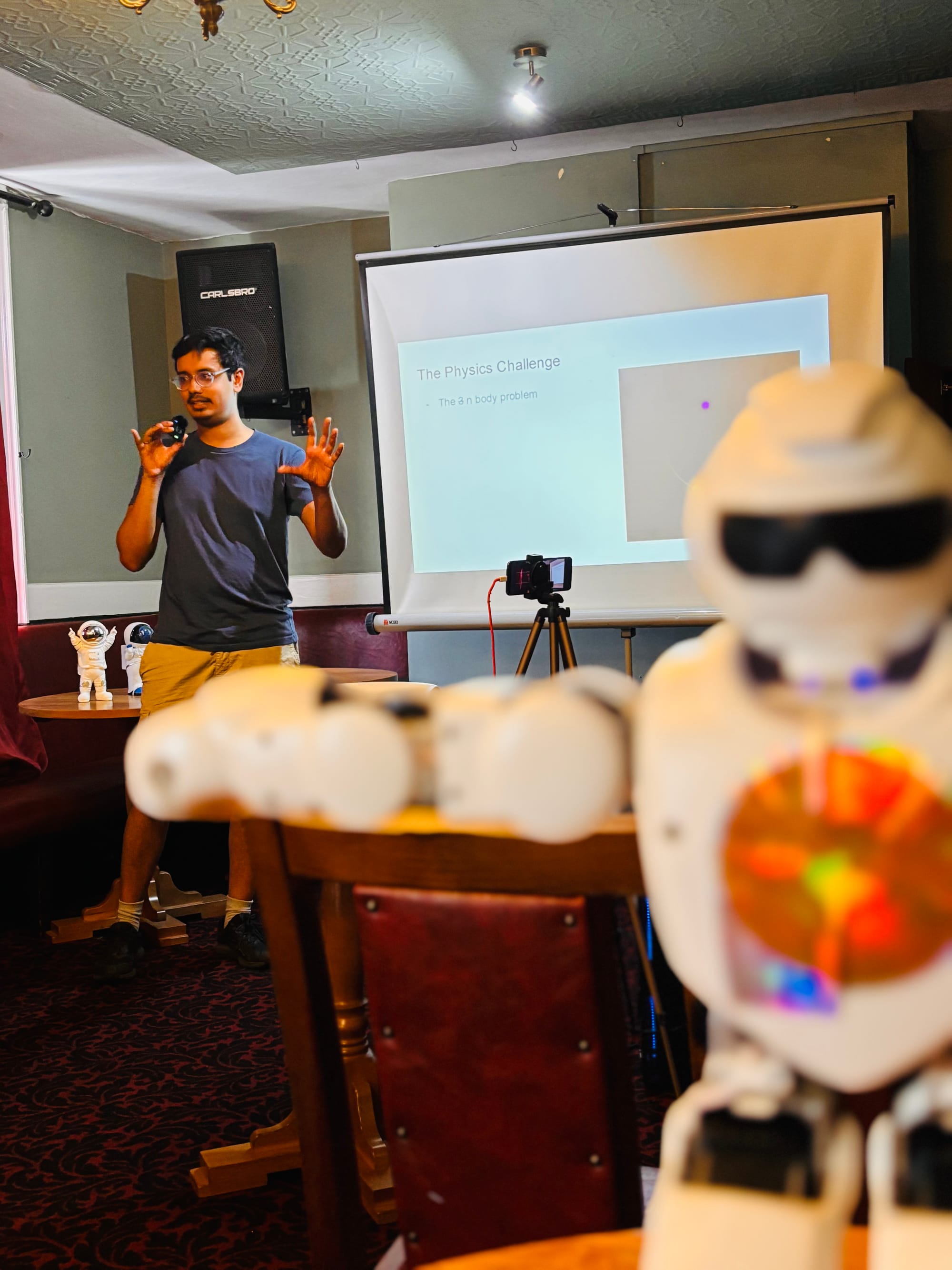
Following my session, Madhavi presented her fascinating insights on self-healing spacecraft, capturing the audience's imagination. A recruiter targeting space engineers (Kate) also shared valuable perspectives and encouraged outreach. The conference adopted an unconference style thereafter, allowing attendees to propose and lead their own sessions. Topics ranged from space solar-powered engines and space elevators to regulatory aspects of space travel and what technology would be like in a space environment.
The conference day concluded with lively discussions and an unforgettable pub quiz, where I was thrilled to win first prize!
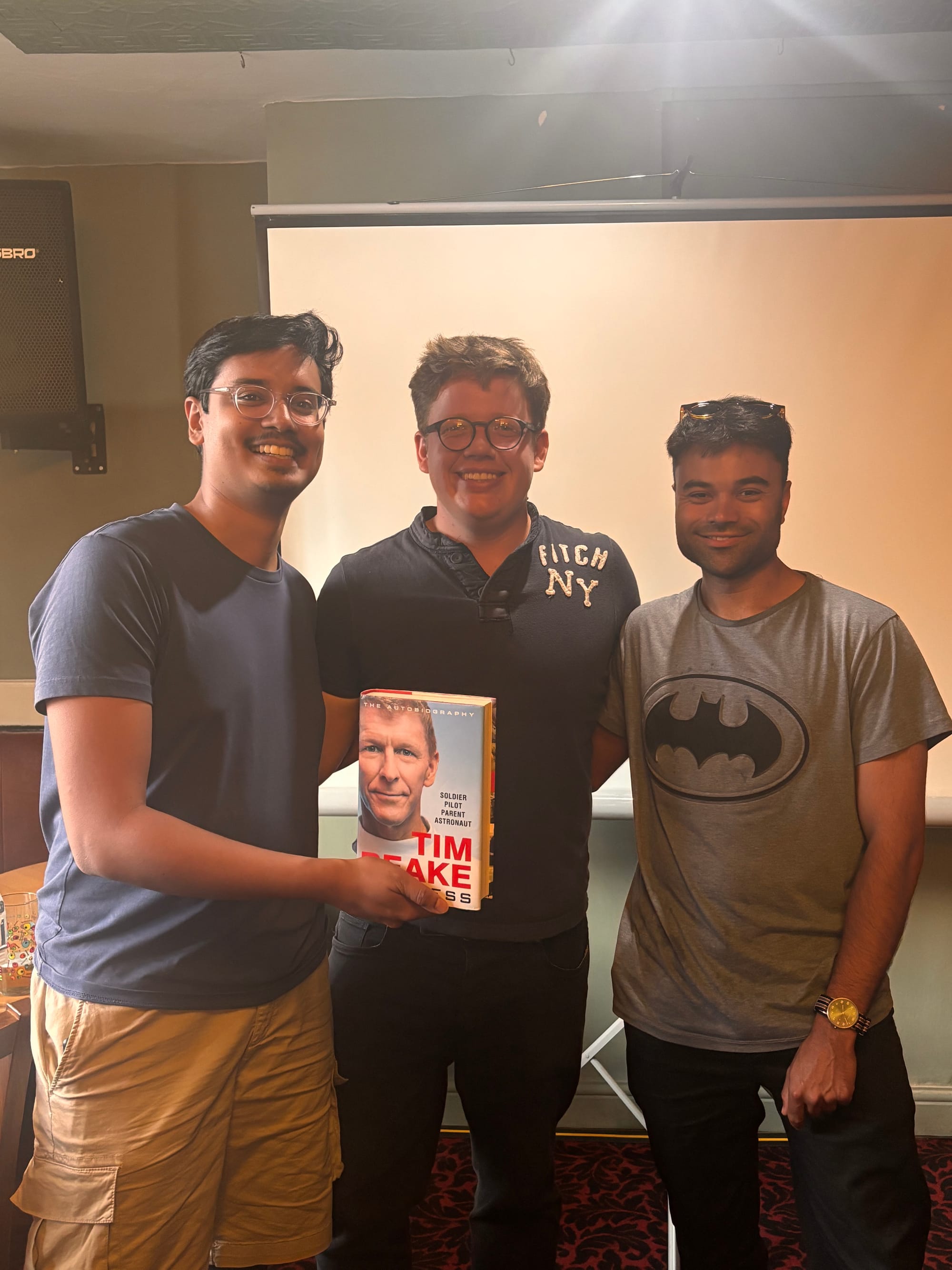
Although the event wrapped up without any major incidents, it successfully gathered a diverse group of enthusiastic participants and influential figures within the UK space industry. As the day ended, I had to transition back to work, but the excitement and accomplishments of the conference left a lasting impression on all involved.
We're most likely going to do this every year, and we're also starting a monthly events series. Watch this space!
